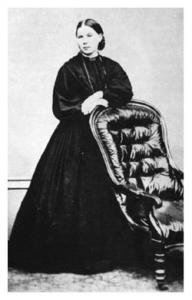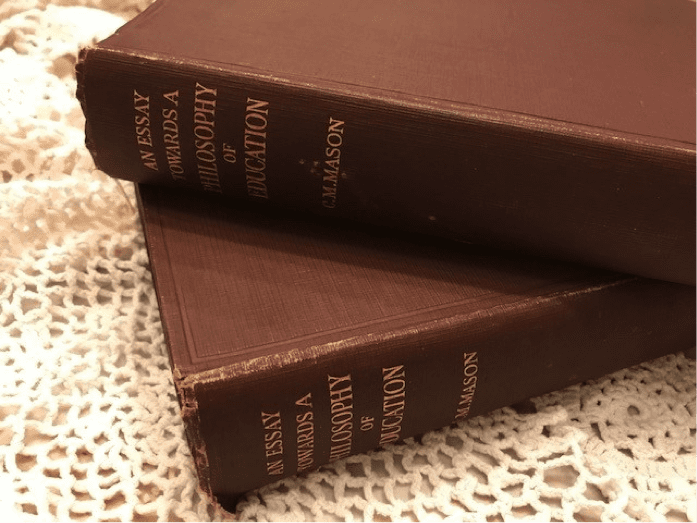Today I’m happy to welcome Rachel A. Neiwert to The Anxious Bench. A history professor at St. Catharine University in St. Paul, Minnesota, Rachel studies the history of education and childhood in the British Empire. This morning she shares a timely reflection on education, as children, parents, and educators alike prepare to start another school year.
Over the weekend, I attended a family camp with my church, where my pastor posed the question, “Do our lives feel so busy because they have no rhythm to them?” He was having us think about the practice of keeping the Sabbath. But his question actually provoked a different line of thought for me because my life definitely has a rhythm: I have two school-age children (6th grade and 3rd grade), and both my husband and I are professors; the rhythm of our life is clearly the academic calendar.
It’s only the beginning of August and I can already feel the pull of the semester’s start—there are syllabi to write, an ever-increasing number of meetings to attend, school supplies to buy, and meet-the-teacher nights to visit. I love the rhythm that school brings to my life because, like a lot of academics, I love school—new notebooks with empty pages ready to be filled with new ideas, new books to be read and pondered, and new teachers and students to stretch me in how I think and understand the world.

One of my most transformative educational experiences happened during the three years I spent teaching seventh and eighth grade at a private, Christian school in Atlanta, Georgia. It was there that I met Charlotte Mason, a British educationalist influential in the late nineteenth and early twentieth centuries. Mason is a fascinating woman. In an era that envisioned women primarily as wives and mothers, Mason remained single throughout her life. For someone from a solidly lower-middle class background, she ran with some of the wealthiest and most influential female philanthropists and educationalists in late Victorian and Edwardian Britain. Though she did spend some time teaching children, her health prevented a long teaching career. She was and continues to be best known for the educational philosophy that she developed at a very unique historical moment.
In 1867, Britain extended the vote to (most) working-class men. At the time though, schooling was neither provided by the state, nor required of children. Within a few short years of the 1867 Reform Act, partially pushed along because of fears of uneducated electorate, Britain passed the first of a series of educational acts requiring parents to send their children to school and recognizing the state’s responsibility to provide an education to its future citizens. This was pretty controversial at the time as it raised all kinds of questions about who should pay, what the place of religion would be in these schools, and how children from different economic classes should or should not interact at these schools.
Mason began writing and speaking in the 1880s as Britain wrestled with these questions. She established an educational organization (the Parents’ National Education Union) to publicize her views, started a home-school organization (the Parents’ Union School) to provide an organized curriculum, and opened a school to train governesses to oversee the curriculum. The gist of her curriculum was that children would read “living books” and narrate back to parents or teacher what they had read, but only in the morning hours. The afternoons were set aside for nature study and outdoor play. At the end of each term, students would take narrative exams (either written or dictated to parents) that would ask big questions. One history text in the early 1920s asked students to explain Britain’s responsibility to its colonies. Students were expected to bring together their term’s reading to answer the questions.
In 1923, Mason’s final book, Towards A Philosophy of Education, was published, summarizing her educational philosophy. In it, she expanded on her educational organization’s motto: “Education is an atmosphere, a discipline, a life.” There isn’t time or space here to get at what Mason means by atmosphere or discipline, but I want to think a minute about what it means to claim “education is a life.”
“That life,” Mason argued, “is sustained on ideas. Ideas are of spiritual origin, and God has made us so that we get them chiefly as we convey them to one another, whether by word of mouth, written page, Scripture word, musical symphony, but we must sustain a child’s inner life with ideas as we sustain his body with food.” I like her analogy to food here—it makes me think about how I savor an excellent meal, and that makes me wonder, Where is the space to savor ideas in our world?
One might think school, but I’m not so sure. It probably isn’t in the myriad of standardized tests my children take or in the frantic syllabi I can sometimes write, with lots of concern for coverage, but not always a lot of space to ruminate on ideas. It’s not in the view of education that reduces its purpose to only getting a job, and it’s not exhibited in a view of education that says a liberal arts education is only for the wealthy.
The idea of education as a life reminds us of the sacred and holy work of learning and interacting with ideas. In a moment when learning feels under attack and education seems to be moving in this very utilitarian direction, Charlotte Mason serves as powerful reminder that the real work of education is this business of wrestling with ideas.
In fairness, Mason can also be super problematic. She lived and worked in, and was informed by, a particular historical context. As a result, she echoed many of the racist ideas of her time, not the least of which was a staunch defense of the British Empire and Britain’s responsibility to bring civilization to it. I would not say we should simply adopt the curriculum she proposed, but I still find her philosophy to present a powerful vision of the possibility of education—and a liberal arts education more particularly.
So there’s definitely rhythm in my life… in just a few short weeks the rituals of new school year will get under way. But I’m still busy. I wonder though: What would happen if our ideas and practices around education always started with “education is a life”?
Would I still feel busy? Or might I feel full?














